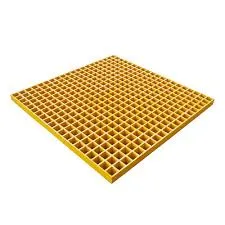
-
 Afrikaans
Afrikaans -
 Albanian
Albanian -
 Amharic
Amharic -
 Arabic
Arabic -
 Armenian
Armenian -
 Azerbaijani
Azerbaijani -
 Basque
Basque -
 Belarusian
Belarusian -
 Bengali
Bengali -
 Bosnian
Bosnian -
 Bulgarian
Bulgarian -
 Catalan
Catalan -
 Cebuano
Cebuano -
 China
China -
 China (Taiwan)
China (Taiwan) -
 Corsican
Corsican -
 Croatian
Croatian -
 Czech
Czech -
 Danish
Danish -
 Dutch
Dutch -
 English
English -
 Esperanto
Esperanto -
 Estonian
Estonian -
 Finnish
Finnish -
 French
French -
 Frisian
Frisian -
 Galician
Galician -
 Georgian
Georgian -
 German
German -
 Greek
Greek -
 Gujarati
Gujarati -
 Haitian Creole
Haitian Creole -
 hausa
hausa -
 hawaiian
hawaiian -
 Hebrew
Hebrew -
 Hindi
Hindi -
 Miao
Miao -
 Hungarian
Hungarian -
 Icelandic
Icelandic -
 igbo
igbo -
 Indonesian
Indonesian -
 irish
irish -
 Italian
Italian -
 Japanese
Japanese -
 Javanese
Javanese -
 Kannada
Kannada -
 kazakh
kazakh -
 Khmer
Khmer -
 Rwandese
Rwandese -
 Korean
Korean -
 Kurdish
Kurdish -
 Kyrgyz
Kyrgyz -
 Lao
Lao -
 Latin
Latin -
 Latvian
Latvian -
 Lithuanian
Lithuanian -
 Luxembourgish
Luxembourgish -
 Macedonian
Macedonian -
 Malgashi
Malgashi -
 Malay
Malay -
 Malayalam
Malayalam -
 Maltese
Maltese -
 Maori
Maori -
 Marathi
Marathi -
 Mongolian
Mongolian -
 Myanmar
Myanmar -
 Nepali
Nepali -
 Norwegian
Norwegian -
 Norwegian
Norwegian -
 Occitan
Occitan -
 Pashto
Pashto -
 Persian
Persian -
 Polish
Polish -
 Portuguese
Portuguese -
 Punjabi
Punjabi -
 Romanian
Romanian -
 Russian
Russian -
 Samoan
Samoan -
 Scottish Gaelic
Scottish Gaelic -
 Serbian
Serbian -
 Sesotho
Sesotho -
 Shona
Shona -
 Sindhi
Sindhi -
 Sinhala
Sinhala -
 Slovak
Slovak -
 Slovenian
Slovenian -
 Somali
Somali -
 Spanish
Spanish -
 Sundanese
Sundanese -
 Swahili
Swahili -
 Swedish
Swedish -
 Tagalog
Tagalog -
 Tajik
Tajik -
 Tamil
Tamil -
 Tatar
Tatar -
 Telugu
Telugu -
 Thai
Thai -
 Turkish
Turkish -
 Turkmen
Turkmen -
 Ukrainian
Ukrainian -
 Urdu
Urdu -
 Uighur
Uighur -
 Uzbek
Uzbek -
 Vietnamese
Vietnamese -
 Welsh
Welsh -
 Bantu
Bantu -
 Yiddish
Yiddish -
 Yoruba
Yoruba -
 Zulu
Zulu
Fiberglass Rectangular Tank Design for Efficient Water Storage Solutions
The Benefits of Using Fiberglass in Rectangular Tank Construction
In the realm of material science and engineering, fiberglass has become an indispensable choice for creating a variety of structures, including rectangular tanks. These tanks are utilized across multiple industries, from agriculture and aquaculture to chemical processing and water treatment. The advantages of fiberglass as a construction material have made it the preferred option over traditional materials like steel and concrete. This article will explore the reasons behind the growing popularity of fiberglass rectangular tanks.
Lightweight and Durable
One of the most significant advantages of fiberglass is its lightweight nature. Compared to metal or concrete, fiberglass tanks are considerably lighter, which simplifies transportation and installation. This characteristic is especially beneficial in remote locations where heavy equipment may not be readily available. Additionally, despite its lightweight quality, fiberglass is remarkably durable. It exhibits excellent resistance to impacts, making it less likely to suffer damage during handling or operational use.
Corrosion Resistance
One of the most critical issues in tank construction is the material's resistance to corrosion, particularly when handling aggressive chemicals or in environments with high moisture levels. Fiberglass tanks are inherently resistant to corrosion, which ensures a longer lifespan and less maintenance compared to traditional materials. This trait is particularly advantageous in industries like chemical processing and waste management, where tanks are frequently subjected to harsh substances.
Versatility in Design
Fiberglass can be molded into various shapes and sizes, making it an incredibly versatile option for engineers and designers. Rectangular tanks can be designed to meet specific requirements, whether it’s for agricultural irrigation, fish farming, or industrial applications. This flexibility allows for customized solutions that can optimize space and enhance operational efficiency. Moreover, fiberglass tanks can be manufactured with additional features such as integrated access points or reinforced sections that enhance functionality.
rectangular tank made of fiberglass material

Low Maintenance Requirements
Another notable attribute of fiberglass rectangular tanks is their low maintenance requirements. Unlike metal tanks that may require regular painting or coatings to prevent rusting and deterioration, fiberglass tanks are virtually maintenance-free. Their non-porous surfaces do not support bacterial growth, and they are easy to clean, making them ideal for applications requiring high hygiene standards, such as in food processing or pharmaceuticals.
Cost-Effectiveness
While the upfront cost of fiberglass tanks may be higher than some traditional materials, the long-term savings are often more significant. The durability and low maintenance costs contribute to a longer service life, reducing the need for frequent replacements. Additionally, the lightweight nature facilitates easier installation, leading to savings in labor and equipment costs. Over time, the total cost of ownership can be lower with fiberglass tanks, making them a financially savvy investment.
Environmental Considerations
As industries increasingly prioritize sustainability, fiberglass emerges as a more environmentally friendly option. Fiberglass tanks are typically manufactured from materials that can be recycled, and their long lifespan reduces the frequency of disposal and replacement. Furthermore, the energy consumption in producing and transporting lightweight fiberglass tanks is lower than that of heavier materials, contributing to a reduced carbon footprint.
Conclusion
In summary, fiberglass rectangular tanks represent a modern solution that embodies a unique combination of lightweight durability, corrosion resistance, versatility, low maintenance, cost-effectiveness, and environmental sustainability. Their applications span a wide range of industries, making them an invaluable asset in any setting that requires reliable and efficient liquid storage solutions. As technology continues to advance, the use of fiberglass in tank construction is likely to expand, further solidifying its role as a leading choice for engineers and industrial operators alike.
Latest news
-
Exploring the Benefits of Top Hammer Drifter Rods for Enhanced Drilling PerformanceNewsJun.10,2025
-
High-Precision Fiberglass Winding Machine for GRP/FRP Pipe Production – Reliable & Efficient SolutionsNewsJun.10,2025
-
FRP Pipes & Fittings for Shipbuilding - Corrosion-Resistant & LightweightNewsJun.09,2025
-
Premium FRP Flooring Solutions Durable & Slip-ResistantNewsJun.09,2025
-
Premium Fiberglass Rectangular Tanks Durable & Lightweight SolutionNewsJun.09,2025
-
Tapered Drill String Design Guide Durable Performance & UsesNewsJun.09,2025









